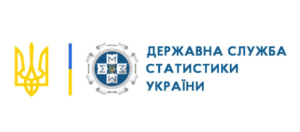
The business confidence indicator in the Ukrainian construction market rose by 3.8 percentage points (pp) in the fourth quarter of 2025 compared to the third quarter, to minus 28.6%, according to the State Statistics Service (Gosstat).
According to a survey of construction companies conducted by the agency, the assessment of the shortage of current orders improved by 5.6 p.p. to ‘minus’ 41.4%. Thus, 48.5% of the companies surveyed assessed their current order volume as normal for the season, while 47% assessed it as insufficient.
Forty-eight per cent of respondents expect prices for their services to increase in the fourth quarter of this year. Only 5% of respondents predict a decrease in the cost of construction work, while 47% do not expect any changes in pricing policy.
According to State Statistics Service data, the companies participating in the survey have an average of six months’ worth of orders, which corresponds to the pre-war figure at the beginning of 2022.
The statistics agency notes that in the fourth quarter of 2025, the construction industry will be negatively affected by labour shortages (55.2%), financial constraints (43.8%), insufficient demand (20.7%) and other factors (41.5%).
A third of the companies surveyed expect a reduction in the number of employees in October-December, while 54% believe that their number will remain unchanged, and 13% predict an expansion of staff.
According to the State Statistics Service, 35% of respondents noted an increase in the volume of construction work completed in the last quarter, while 24% reported a decrease in volumes.
The survey showed that 99% of Ukrainian construction companies find it quite difficult to predict future business developments.
The statistics do not include territories temporarily occupied by the Russian Federation and parts of territories where hostilities are (were) ongoing.

In Ukraine, prices for the resource rose in November, with 9.7 million cubic meters sold. In Europe, spot prices were around €32/MWh, with volatility driven by weather forecasts, sanctions (the 19th EU package), and lower production in Norway. EU underground gas storage facilities were filled to 82.82% of their technical capacity, while Ukraine accumulated over 13 billion cubic meters and began the withdrawal season.
Last week, trading continued for October and November 2025 resources. In general, positions for the purchase and sale of natural gas were formed by the following companies: Ukrnafta, Energo Zbut Trans, Tepla Energetichna Kompaniya, SP BNK, etc.
Starting prices for resources rose during the week. As a result, as of Friday, the average starting price of November resources in the GTS was 3.45% higher than on Monday and amounted to UAH 23,425 excluding VAT.
Tepla Energetichna Kompaniya entered the auction with an offer to sell imported natural gas in the section of the same name with delivery in November to the GTS.
During the past week, only positions for sale were sold. A total of 9,700 thousand cubic meters of natural gas was sold (+28% from the previous week). This entire volume was sold by Ukrnafta – November resource in the UGS. In general, the prices of positions sold last week ranged from 21,085 to 21,415 UAH/thousand cubic meters excluding VAT, which is more than 1,000 UAH higher than the prices of the previous week.
On the short-term natural gas market of the UEB, participants formed bids on the intraday market in the GTS and UGS. In total, agreements were concluded for a total volume of 396 thousand cubic meters (-25% compared to the previous week). By October 24, the weighted average price of KSP had increased by +7.3% compared to October 17.
Last week, geopolitics continued to make headlines but offered little certainty. While on Wednesday, futures for the coming month on gas markets fell by ~2% amid forecasts of higher temperatures in the UK and Europe, which signaled restrained gas demand in November, on Thursday they rose, coinciding with the confirmation of the 19th package of EU sanctions, which will ban imports of Russian LNG from 2027, adding a small premium for geopolitical risk on European hubs. Additionally, this trend is driven by rising domestic demand and reduced production in Norway following the temporary closure of the Oseberg field.
The British gas market followed the European market on Thursday after the US announced sanctions against Lukoil and Rosneft, Russia’s two largest oil companies. Gas prices in the US rose to $3.46 per million BTU, which is 20% higher than the lows recorded on October 17. The continuation of the upward trend in US gas prices could lead to higher LNG prices and increased delivery costs during the winter.
Prices of contracts with delivery in the corresponding period, EUR/MWh, 24.10.2025
Instrument THE CEGH TTF TGE/POLPX Average value
Day1 33.31 34.83 32.42 39.68 35.06
M+1 33.519 34.75 32.44 38.30 34.75
Q +1 33.94 34.99 32.78 38.58 35.07
S +1 32.12 33.96 30.91 36.42 33.35
Contracts for the month ahead on all analyzed hubs showed a different trend compared to spot prices, falling by an average of 0.75%. Quarterly forward prices were on average 0.17% higher than spot prices. Seasonal forward prices, with an average value of €33.35/MWh, tended to be 4.73% lower than spot prices on average.
The US sanctions coincide with the EU’s decision to implement the 19th package of sanctions against Russia, terminating all short-term LNG supply contracts within six months and completely banning Russian LNG from January 2027, one year ahead of schedule.
Further along the curve, prices fell on Friday morning for most contracts, with declines observed from the summer Sum-26 contract to the winter Win-28 contract, indicating that the previous price increase may have been driven mainly by short-term fundamentals.
EU gas storage levels fell to 82.82% on October 22, which is 9% below the 5-year average. The situation with storage facilities in the EU has remained unchanged for a month and is holding at 82%. There are two competing factors behind this static indicator: last week, gas demand in Europe exceeded seasonal expectations by more than 10%, but LNG supplies have already reached the level of the first half of this year. Europe is likely to enter the heating season with the lowest storage levels since 2015 and has recorded its earliest week of net withdrawal since 2020.
The December LNG futures contract in Asia, the JKM Platts Future index, settled at $403.29 per thousand cubic meters on October 23. Futures for LNG supplied to North-West Europe (LNG North West Europe Marker) closed at $375.36/thousand cubic meters.
European LNG receiving terminals operated at an average capacity of 51.0% on October 22.
LNG stocks in the EU as of October 22, 2025, amounted to 4.874 million cubic meters of LNG, according to Aggregated LNG Storage Inventors.
Natural gas imports from Europe averaged 15 million cubic meters per day (-8 million cubic meters compared to the previous period) with significant fluctuations during the week. Imports came from Slovakia, Hungary, and Poland. Imports from Poland fluctuated significantly due to repair work. Hungary was the main source of imports. There were no exports. Ukraine’s storage facilities held about 13.1 billion cubic meters of natural gas, roughly the same as last week. On October 22, 1 million cubic meters of natural gas was withdrawn from underground storage facilities.
Source: https://expertsclub.eu/oglyad-czin-na-gaz-v-ukrayini-ta-yevropi/
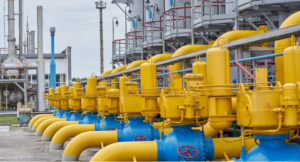
The National Energy Regulatory Agency (ANRE) of Moldova has approved the extension and updated conditions of the joint regional project for the transportation of natural gas along the so-called “Route 1” through the Trans-Balkan pipeline, which provides for a 50% tariff reduction for Moldova and Romania for gas supplies to Ukraine.
According to the agency, the decision was taken at the ANRE Council meeting on October 24, 2025 at the initiative of operators of gas transportation systems from Greece, Bulgaria, Romania, Moldova and Ukraine. The project is aimed at strengthening regional energy security and ensuring stable gas supplies to Ukraine.
“The Council approved the extension of the Route 1 product for six months – from November 2025 to April 2026 – as well as a 50 percent reduction in gas transportation tariffs for Vestmoldtransgaz (Moldova) and Transgaz SA (Romania) on key interconnectors,” the regulator said in its decision.
The Route 1 project envisages the use of the existing infrastructure of the Trans-Balkan gas pipeline, which connects Greece-Bulgaria-Romania-Moldova-Ukraine.
Through this route Ukraine can receive gas coming from the southern direction – from LNG terminals in Greece (Revitusa, Alexandroupolis) and from Turkish storage facilities.
The reduction of the Romanian and Moldovan tariff makes supplies through this line economically more favorable and increases the flexibility of gas purchases from alternative sources.
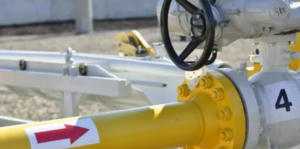
On October 24, the National Energy Regulatory Agency of Moldova (ANRE) held an open meeting of the Board of Directors, during which it approved a 50% reduction in tariffs for gas transportation to Ukraine.
“During the meeting, the Board approved amendments to Decision No. 272/2025 on the optimization of the ”Route 1″ capacity product on the Trans-Balkan pipeline, following a joint initiative submitted by natural gas transmission system operators from Greece, Bulgaria, Romania, the Republic of Moldova, and Ukraine. The initiative aims to strengthen regional energy security and ensure natural gas supplies to Ukraine,“ according to a statement on the ANRE official website.
”The approved changes provide for the extension of the application of the “Route 1” product for 6 months (November 2025 – April 2026), the application of a 50% reduction in transportation tariffs for SRL “Vestmoldtransgaz” at the Kaushen and Grebeniki interconnection points, as well as the extension of the application of the capacity product to all relevant interconnection points along the route. The application of a 50% reduction in transportation tariffs is also provided for by the Romanian transmission system operator SA “Transgaz,” ANRE explained.
“With this decision, the Republic of Moldova is strengthening its role as a regional transit corridor, facilitating the transport of natural gas from Greece to Ukraine and contributing to the diversification of routes and sources of supply. In the long term, transportation volumes are expected to increase and, as a result, the associated tariffs will decrease for users of the transport system operated by SRL Vestmoldtransgaz,” the statement emphasized.
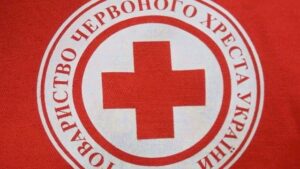
The Ukrainian Red Cross (URC) and the State Emergency Service of Ukraine conducted joint exercises in the Rivne region, the URC reported on Facebook on Saturday.
“Our cooperation with the State Emergency Service of Ukraine is an example of unity that saves lives. We are developing joint training platforms, strengthening the capacity of communities, and helping those who are the first to respond to emergencies. Today, the Ukrainian Red Cross is integrated into the territorial subsystems of the Unified State Civil Protection System in 20 regions. We have become part of the state response mechanism and plan to complete integration at the regional level by May 2026,” said Maxim Dotsenko, Director General of the Ukrainian Red Cross, at the opening of the exercises.
According to Vladimir Demchuk, Deputy Chairman of the State Emergency Service of Ukraine, such exercises are not only a training of technical skills, but also a rehearsal of interaction between structures that act as a single team at a critical moment.
“We are grateful to the Ukrainian Red Cross for its support, equipment, training opportunities, and constant readiness to help,” Demchuk said.
During the exercises, rescuers and volunteers from the Ukrainian Red Cross rapid response teams from five regions practiced coordinating their response to emergencies.
Participants worked at four locations, practicing rescue operations for victims trapped under rubble, responding to the consequences of chemical and radiation incidents, extinguishing fires during road accidents, and decontaminating victims at a decontamination station.
In addition, the Ukrainian Red Cross and the State Emergency Service of Ukraine signed an agreement on the joint use of the State Emergency Service of Ukraine’s training ground in the Rivne region.
As part of the event, the Main Directorate of the State Emergency Service of Ukraine in the Rivne region received a modular house, which will serve as a space for training and coordinating actions during exercises. In addition, 95 sets of firefighting equipment were transferred to volunteer firefighting teams in the territorial communities of the Rivne region.
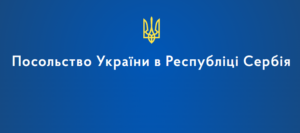
The Ukrainian children’s art festival “Veselka” was held in Novi Sad, Serbia, organized with the participation of the Ukrainian Embassy and the Ukrainian diaspora. The event became a platform for cultural unity and support for Ukrainian families living in Serbia.
The Veselka festival brought together children and families of Ukrainian origin from different cities in Serbia, offering them master classes, concerts, and interactive zones. The aim of the event was to preserve ties with Ukrainian roots, support the emotional well-being of migrant children, and strengthen the cultural infrastructure of the diaspora.
Exact data on the number of Ukrainian citizens and residents in Serbia varies. According to the Serbian Ministry of Internal Affairs, approximately 22,000 Ukrainian citizens have been registered in the country since the start of the war.
However, statistics on the number of Ukrainians living permanently or under temporary protection are not published regularly.